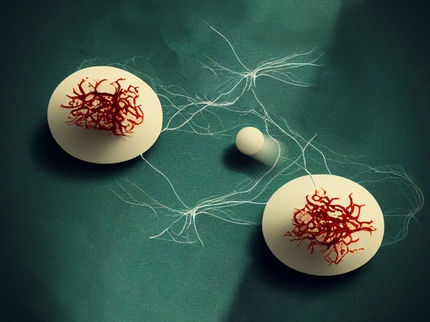Dieting: brain amplifies signal of hunger synapses
Possible target for drugs to combat the yo-yo effect
Advertisement
Many people who have dieted are familiar with the yo-yo effect: after the diet, the kilos are quickly put back on. Researchers from the Max Planck Institute for Metabolism Research and Harvard Medical School have now shown in mice that communication in the brain changes during a diet: The nerve cells that mediate the feeling of hunger receive stronger signals, so that the mice eat significantly more after the diet and gain weight more quickly. In the long term, these findings could help developing drugs to prevent this amplification and help to maintain a reduced body weight after dieting.

Symbolic image
pixabay.com
"People have looked mainly at the short-term effects after dieting. We wanted to see what changes in the brain in the long term," explains Henning Fenselau, a researcher at the Max Planck Institute for Metabolism Research, who led the study.
To this end, the researchers put mice on a diet and assessed which circuits in the brain changed. In particular, they examined a group of neurons in the hypothalamus, the AgRP neurons, which are known to control the feeling of hunger. They were able to show that the neuronal pathways that stimulate AgRP neurons sent increased signals when the mice were on a diet. This profound change in the brain could be detected for a long time after the diet.
Preventing the yo-yo effect
The researchers also succeeded in selectively inhibiting the neural pathways in mice that activate AgRP neurons. This led to significantly less weight gain after the diet. "This could give us the opportunity to diminish the yo-yo effect," says Fenselau. "In the long term, our goal is to find therapies for humans that could help maintaining body weight loss after dieting. To achieve this, we continue to explore how we could block the mechanisms that mediate the strengthening of the neural pathways in humans as well."
“This work increases understanding of how neural wiring diagrams control hunger. We had previously uncovered a key set of upstream neurons that physically synapse onto and excite AgRP hunger neurons. In our present study, we find that the physical neurotransmitter connection between these two neurons, in a process called synaptic plasticity, greatly increases with dieting and weight loss, and this leads to long-lasting excessive hunger”, comments co-author Bradford Lowell from Harvard Medical School.
Original publication
Katarzyna Grzelka, Hannah Wilhelms, Stephan Dodt, Marie-Luise Dreisow, Joseph C. Madara, Samuel J. Walker, Chen Wu, Daqing Wang, Bradford B. Lowell, Henning Fenselau A synaptic amplifier of hunger for regaining body weight in the hypothalamus Cell Metabolism, 24. März 2023



























































